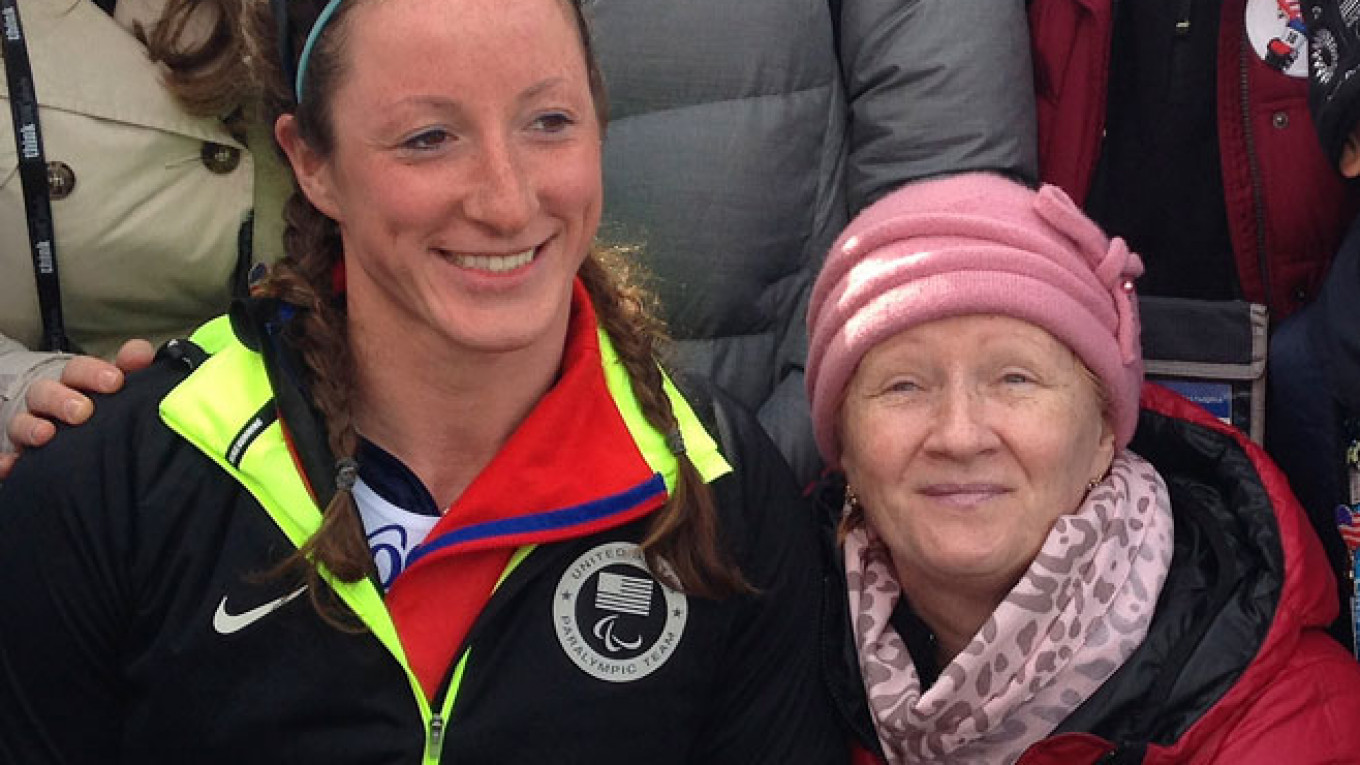KRASNAYA POLYANA — Pushing through pain in her debut at the Winter Paralympics, Tatyana McFadden only had to remember who was watching to draw inspiration on this emotional homecoming.
Together in the stands at the cross-country skiing were McFadden's Russian birth mother and the American who adopted her as an ailing child.
"I got to see them before I raced so I think it gave me that extra energy, an extra boost," the 24-year-old McFadden said after finishing fifth. "I just raced for my family today. When I was feeling tired, in pain and frustrated I just had to think about my family in the stands."
When McFadden left a St. Petersburg orphanage for Maryland 20 years ago, she was not expected to live long, let alone return to Russia. After spending the first six years of life walking on her hands because of spina bifida, even after several operations in the U.S., her adoptive family feared the worst.
But McFadden survived against the odds, with a fighting spirit that drove her into an unlikely yet successful sporting career, leading to Sunday's emotional and rare reunion with the mother forced to abandon her.
"I am very proud, it is amazing," said Nina Polevikova, beaming with pride at her daughter as her Russian family translated. "It is like a miracle."
McFadden is already a decorated athlete, with 10 medals from the last three Summer Paralympic Games in wheelchair racing, and last year the first "grand slam" in wheelchair marathon racing.
Deborah McFadden, who adopted Tatyana at age 6, had expected the winnings from the Boston, Chicago, London and New York marathon to be spent on a new car. Instead that cash was used to bring her birth family and the St. Petersburg orphanage director to Sochi.
"Tatyana is my daughter, but it has taken a lot of people to get her where she is today," said Deborah McFadden, who first met Tatyana in Russia while working as a commissioner of disabilities for the U.S. Department of Health and Human Services.
"She is alive and she is back in the country where I met her where she was not supposed to survive."
She is doing more than just surviving. And the pride of her mothers was clear from the tearful hugs as she recovered from the grueling Paralympic debut over 12 kilometers.
"It is definitely been a tough transition," said McFadden, who won three golds on the track at the 2012 London Paralympics. "It is harder than wheelchair racing because the snow can change every day."
At a Paralympics overshadowed at times by politics in Russia, McFadden steered clear from controversy. Previously, McFadden tried unsuccessfully to derail a Russian law that prohibits adoptions of Russian children by American parents.
"We did everything we could," she said. "I think that being here people can see my story and what an impact it is, just from my personal experience."
So adopting a more diplomatic stance than previously, she instead delivered a message to disabled children who might have given up hope.
"I have always had a lot of courage, and a lot of strength," she said. "And it made me the person I am today."
And, with three more events to come in Sochi, McFadden will hope to return from Russia with a medal,
"I love being part of the [Russian] culture, eating the food and meeting the people," she said. "But my home is in America."
A Message from The Moscow Times:
Dear readers,
We are facing unprecedented challenges. Russia's Prosecutor General's Office has designated The Moscow Times as an "undesirable" organization, criminalizing our work and putting our staff at risk of prosecution. This follows our earlier unjust labeling as a "foreign agent."
These actions are direct attempts to silence independent journalism in Russia. The authorities claim our work "discredits the decisions of the Russian leadership." We see things differently: we strive to provide accurate, unbiased reporting on Russia.
We, the journalists of The Moscow Times, refuse to be silenced. But to continue our work, we need your help.
Your support, no matter how small, makes a world of difference. If you can, please support us monthly starting from just $2. It's quick to set up, and every contribution makes a significant impact.
By supporting The Moscow Times, you're defending open, independent journalism in the face of repression. Thank you for standing with us.
Remind me later.






